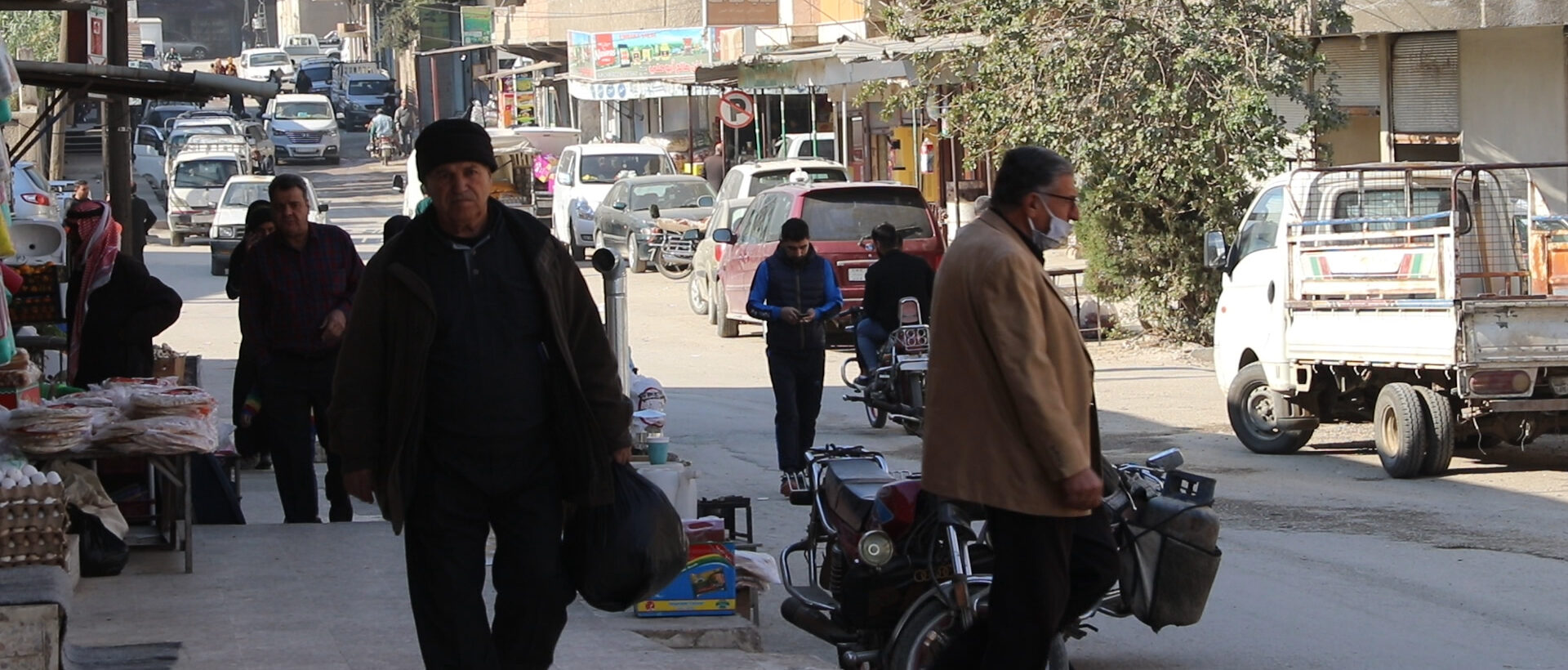Retailers and traders in Derik city, northeast Syria, call venture capitalists and production expertise to set up industrial plants in Derik. They urge the Autonomous Administration and local authorities to support such projects with the aim to police prices and limit the reliance on imported stuff.
Shopkeepers in Derik and its countryside say purchasing stuff from Qamishli city are expensive and the cost of transferring them to Derik doubles the prices although some of the stuff are imported from Iraq and they enter Syria through Derik.
The Jazira region in northeast Syria has been the least developed Syrian areas in economic-related production and construction for decades despite it is known as Syria’s [bread] basket and Syria’s main source for agricultural crops and cattle industry, according to economic observers.
However, the last year deficit rainfall prompted residents in the Jazira region to search for other crafts and sources of income under the restriction imposed on imported goods. Additionally, pre-war drought times had caused unemployment and migration from the area.
Good atmosphere
Retailers purchase goods from wholesalers or importers with prices that increase day by day. This prompts the retailers to say that Derik is a safe place and has a good atmosphere for domestic production facilities to be established in.
Abdul-aziz Darwish, 60, is a retailer who says that the majority of stuff he sells are imported to the Autonomous Administration areas and this explains why prices keep going up. Darwish told North Press that Derik is a stable area and has good atmosphere for projects to be set up in.
“For example, if plants to manufacture oil are available, oil will be sold for cheap prices, thus traders will make profits and workers and retailers could benefit, too,” he added.
Other traders believe that the fertile agricultural lands and irrigated fields near Derik can facilitate providing raw materials for food industry. Plus, the location of Derik, which is close to Semalka crossing point on the Syrian-Iraqi border, facilitate providing maintenance supplies and other industry equipment.
Few industrial plants
Muhammad Sa’id, 62, a shopkeeper who explained to North Press that the industrial plants in the Jazira region are still too few and they situate in Qamishli city if available. Sa’id said if the Autonomous Administration supports venture capitalists, the latter will be encouraged to start up industrial projects that will definitely benefit the densely populated region.
“The decrease in reliance on USD, whose exchange rates against the Syrian pound vary day by day, will benefit the whole residents and the economy will revive,” he added.
Khabat Abdullah, a retailer, said good potentials are available in Derik and its neighboring villages. The existing industrial plants, although producing light goods and are few in number, collaborate in providing stuff for the market and job employment in the area, he said.
The Jazira region contains industrial plants to produce yoghurt, cheese, chips, mineral water and lentil packaging. The more domestic production projects startup, the more the region revives and becomes self-sufficient. Hence the cost of imported goods from Damascus, Turkey or Iraqi Kurdistan Region [is reduced].
The retailer said the goods they import from Turkey are expensive since importers pay custom fees more than once to get them to northeast Syria.

